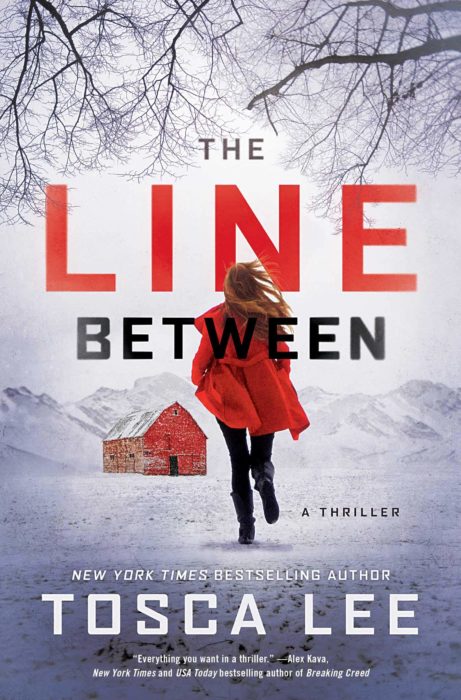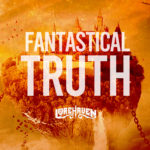In Our New Podcast Episode, We Encourage You to Be a Creative ‘Prepper’ for Hard Times
In episode 7, we promised our next episode would focus on Frank E. Peretti’s This Present Darkness.
But first, a word from our biggest news of 2020.
In Fantastical Truth episode 8, Zackary Russell and I share a few “favorite” pandemic stories, including the recent Planet of the Apes film trilogy and Tosca Lee’s 2019 novel The Line Between.
These stories can actually help Christians prepare our imaginations for these trials—or even worse suffering.
Podcast: Play in new window | Download
Lorehaven reviews The Line Between
These truth glimpses give The Line Between surprising heart-warmth amongst the chill, while its road-trip quest drives fast through mad territory and never once feels bogged down in snowbanks. Even by the finale, we get hints that our heroes have learned that yes, sometimes you must stay preserved from a world gone mad, but for the greater mission of helping others in that world. As Aleksandr Solzhenitsyn wrote, you can’t simply separate from evil people—not even cultists—in order to avoid evil. That very line between evil and good cuts through every human heart.
- Read the full review in Lorehaven magazine’s spring 2019 issue.
- Read our interview with bestselling novelist Tosca Lee.
- Subscribe free to get every issue.
Quotes and notes
- In 2017, Mark Carver wrote at Speculative Faith, “It’s interesting how the biggest threat to human existence rarely gets news coverage. It’s not North Korea or global warming or white privilege; it’s disease.” (Down With the Sickness, Sept. 20, 2017)
- Big lessons of pandemics: we’re not in control. These events challenge us to ask ourselves, “Where is my hope?”
- We blame politicians or countries or each other, or downplay the problem versus panicking, and/or buy into conspiracy theories—all because doing so gives us a sense of control.
- Christians may be material “preppers,” but we must always be preppers for times of suffering.
Most of us don’t five focused thought to evil and suffering until we experience them. This forces us to formulate perspective on the fly, at a time when our thinking is muddled and we’re exhausted and consumed by pressing issues. Readers who have “been there” will attest that it’s far better to think through suffering in advance.
—Randy Alcorn, If God is Good, page 14
Read the complete show notes here.
Then, next week in episode 9, we really will explore that 1980s Peretti-verse as originally promised.
Godspeed, and stay healthy,
Stephen










































For a post apocalyptic story that sort of discusses how society might cope with/after a disaster, I recommend reading the comic on Line Webtoon called Rot And Ruin by Jonathan Maberry and Alempe. Apparently it’s based on a novel, and it’s focused less on violent zombie killing and more on interpersonal stuff and how society would operate under those circumstances. It has some interesting ideas. I don’t know or recall if the zombie thing was started by a disease or not, but yeah. It’s free and already has quite a few episodes out, so worth a read regardless:
https://www.webtoons.com/en/horror/rot-and-ruin/ep-1/viewer?title_no=1878&episode_no=1
Of course nowadays, my big question with evaluating post-apocalyptic fiction is: did they all run out of toilet paper?! =p Thanks for letting us know about that comic. I started reading it and it looks cool. I like the format where it just keeps scrolling down.